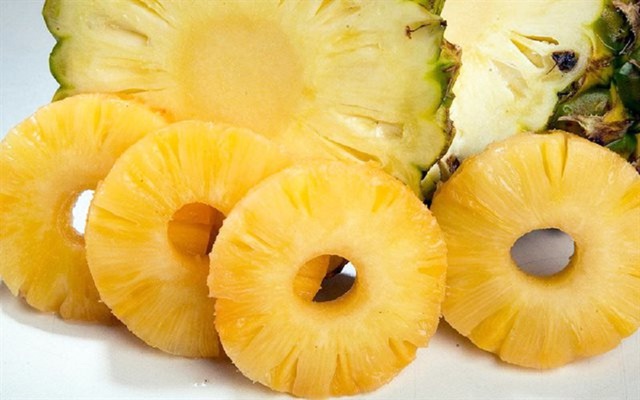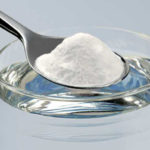Honeydew Melons: A Refreshing Treat, Free of Pesticides
This delightful fruit is a perfect summer snack, packed with vitamins, minerals, and other beneficial plant compounds. But there are a few things to keep in mind before indulging in this juicy treat.
Honeydew melons are composed of nearly 90% water, making them an excellent contributor to your overall hydration. So, during the hot summer months, this fruit is a fantastic choice to stay refreshed and hydrated.

Honeydew melons are a familiar sight in many households. Illustration.
– Nutritional Boost: Honeydew melons, especially those with green flesh, are packed with nutrients, fiber, and beneficial plant compounds. Don’t worry about the natural sweetness of the fruit, as the high water content dilutes the sugar, according to Suc Khoe & Doi Song.
– Vitamin-Rich: These melons are fat-free yet provide a generous amount of vitamin C, vitamin B6, folate, vitamin K, potassium, and magnesium. Additionally, the seeds and flesh contain powerful antioxidants such as beta-carotene, phytoene, quercetin, and caffeic acid.
– Heart-Healthy: Consuming fruits like honeydew melons is excellent for cardiovascular health. Their high potassium and low sodium content can help maintain healthy blood pressure levels. Furthermore, they are a good source of folate and other B vitamins, which reduce homocysteine levels, associated with a lower risk of stroke.
– Immune-Boosting: Honeydew melons are rich in vitamin C, renowned for its role in supporting immune function. Research suggests that adequate vitamin C intake can prevent respiratory infections such as pneumonia and the common cold.
– Digestive Benefits: The fiber in honeydew melons promotes a healthy digestive system. Including enough fiber in your diet slows the absorption of sugar, encourages regular bowel movements, and fosters the growth of healthy gut bacteria. For individuals with digestive disorders or those new to fiber, it is advisable to start with a smaller amount of fiber and gradually increase it.
– Eye Health: The aging process and exposure to sunlight can lead to eye problems such as cataracts and age-related macular degeneration. Honeydew melons contain two powerful antioxidants, lutein and zeaxanthin, which support eye health and prevent age-related vision loss.
Honeydew Melons Help Prevent Dehydration
Some Precautions to Keep in Mind
As delicious as they are, honeydew melons come with a few words of caution:
– Individuals with weak digestion, abdominal distension, and loose stools should refrain from consuming this type of melon.
– Those with bleeding disorders or physical weakness should avoid consuming the stems of honeydew melons.
– Allergic reactions, although rare, may include a tingling sensation in the mouth, swollen or numb lips, itchy throat, congestion, or a runny nose.
Pineapples: A Delicious, Nutritious, and Pesticide-Free Treat
With the scientific name Ananas sativa Liun. (Ananas sativa L.), pineapples belong to the Bromeliaceae family. Interestingly, what we commonly refer to as the “pineapple fruit” is actually the fusion of the flower’s axis and fleshy leaves, while the true fruit lies within the pineapple’s eyes.
Pineapples are composed of 90% water, with the remaining 10% consisting of proteins, organic acids, carbohydrates, cellulose, calcium, phosphorus, iron, carotene, vitamins B1, B2, PP, and C.
Due to their thick skin, pineapples effectively prevent the absorption of externally applied pesticides. When purchasing pineapples, opt for those that are ripe but not overly so, as they tend to spoil and ferment quickly. Pineapples can be stored in the refrigerator.

This fruit makes for a delicious and healthy juice. Illustration.
– Cancer Prevention: Consuming a pineapple a day may help prevent cancer. Another wonderful aspect of this fruit is its ability to slow down cell damage, making you appear younger. This fruit is packed with antioxidants that can protect you from various ailments.
– Dental Health: According to Lao Dong, pineapples strengthen gums and promote healthy teeth due to their calcium content. Manganese, another mineral found in pineapples, also contributes to stronger bones and teeth.
– Bone Health: Pineapples are rich in manganese, which helps fortify your bones. Simply include this fruit in your daily diet to reap these benefits.
– Digestive Aid: Whether eaten whole or juiced, pineapples can relieve bloating and discomfort. They are an excellent source of bromelain, fiber, and vitamin C, all of which support healthy digestion.
– Cold and Cough Remedy: Pineapples contain bromelain 1, an enzyme with anti-inflammatory properties that can fight infections and destroy bacteria. Regular consumption of pineapples may help prevent coughs and colds.
– Skin Benefits: Pineapple juice, rich in vitamin C and antioxidants, can treat acne, sun damage, and uneven skin tone.
Valuable Tips for Enjoying Pineapples Safely:
– Avoid overeating pineapples, as they may cause mouth irritation and weight gain due to their high sugar content and energy density, especially for those who are overweight, obese, or diabetic.
– Individuals with stomach and duodenal ulcers should refrain from consuming large amounts of pineapple due to its organic acid and enzyme content, which can aggravate mucosal inflammation.
– Pregnant women should avoid excessive pineapple consumption, as it may stimulate uterine contractions and increase the risk of miscarriage.
– Refrain from eating pineapples on an empty stomach, as it may cause stomach discomfort, nausea, and other unpleasant symptoms…
According to Nguoi Dua Tin
How to Effectively Treat Fishbone Issues at Home
Everyone loves feasting on the deliciousness of fish during the holidays. But, unfortunately, choking on fish bones is an unavoidable issue that may lead to devastating consequences if left unattended for a prolonged period. Let’s see how Dien May Xanh can help us out when fish bones get stuck in our throat.














